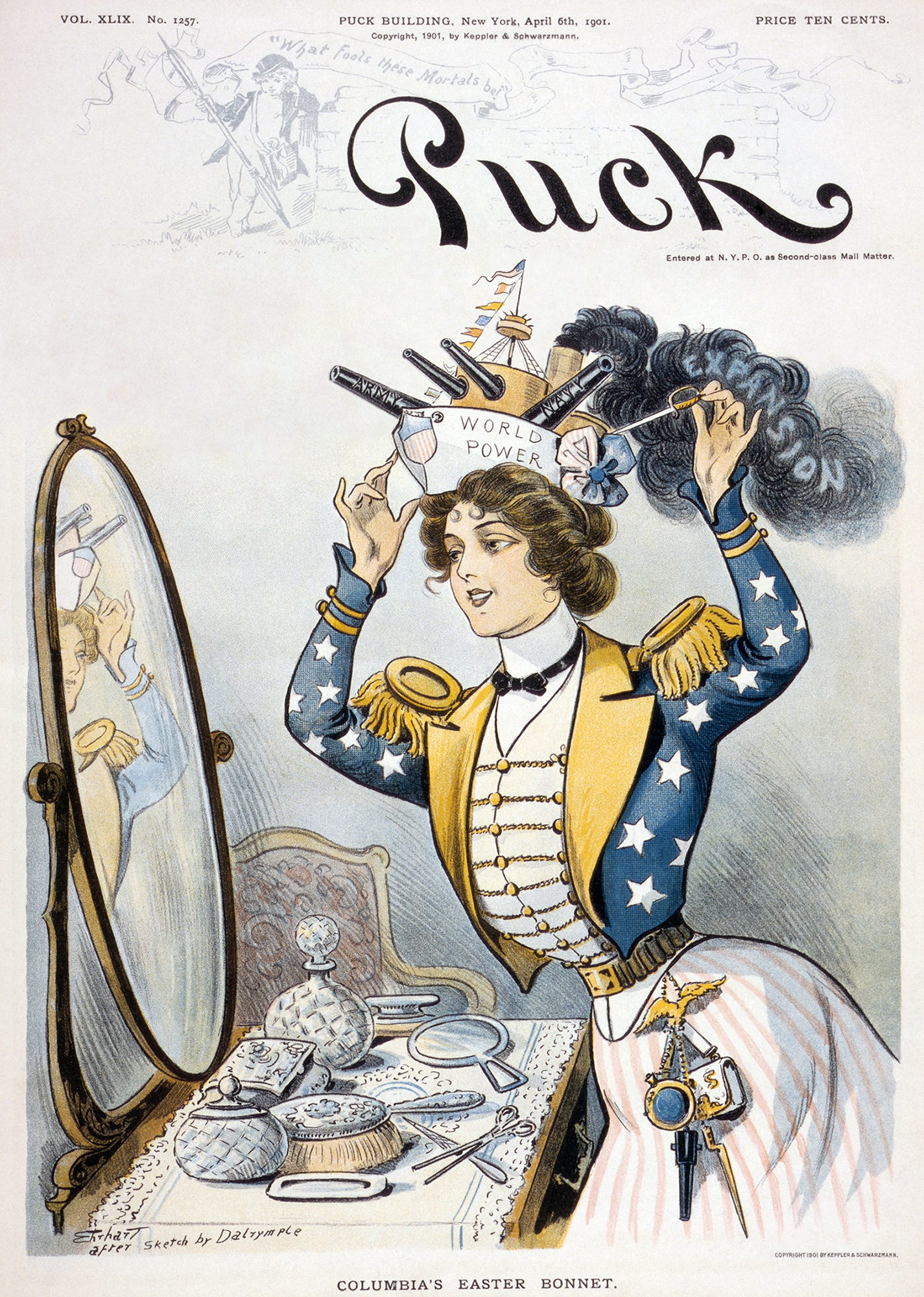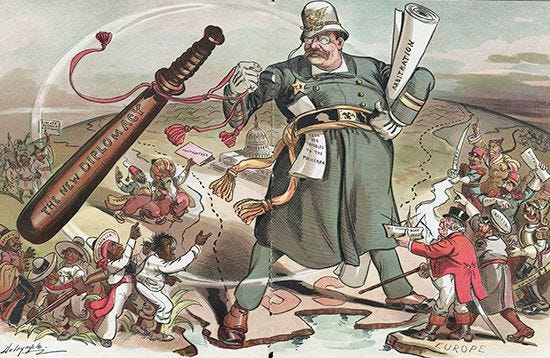Sharp-Elbowed Diplomacy
The Trump administration has faced criticism for its cajoling of foreign diplomats over climate policy, but this is just classic diplomacy in action.
When the issue of diplomacy is covered by legacy media outlets, it is often a caricature of what international relations actually is and how it really operates. A great deal of energy is spent on showing diplomacy to be friendly, non-confrontational, and intended to bridge divides and make compromises. This presentation is meant to push the idea that this sort of amicable banter is the best and only way to solve geopolitical problems and advance American interests. Anything more antagonistic or direct is seen as an affront to diplomacy as such. This position was perfectly demonstrated by a recent article in the New York Times about the Trump administration’s push to stop an international climate-related tax on global shipping.
The proposed agreement between more than 100 nations would have imposed a graduated series of financial penalties on seagoing cargo vessels that are deemed to pollute the environment. The tax would steadily increase and become more stringent, applying to a greater number of ships each year, until the industry adopted supposedly “clean” technologies. This UN-backed system would operate similarly to how automobile emissions regulations work, with the end goal being the same: a shift entirely away from fossil fuels. Automobiles are far easier to operate with alternate fuels than are oceangoing container ships, which require immense amounts of power to function. They also spend weeks, if not months, at a time out to sea, traveling between continents and across oceans. Any non-nuclear “clean” power source would be radically insufficient to deliver the energy needed to sustain global shipping, 80 percent of which is seaborne, much less to deal with what will likely be significantly increased volume over the coming decades. A policy like this, adopted by international bodies without regard to the sovereignty of individual nations, would devastate world trade and lead to dramatically worse outcomes for mankind.
Unsurprisingly, the Times presents the plan as a beneficial and necessary change that the Trump administration unjustly opposed. But the more interesting aspect of the piece was the description of the approach the White House took to scuttling it. According to the Times, the administration threatened several diplomats with negative consequences for their countries or their fellow diplomatic envoys if they did not cease their support for the climate tax pact. These ranged from increased port fees or outright refusal to allow foreign sailors to dock, to visa restrictions, tariffs, and sanctions on individual foreign officials. The feverish push against this proposal was led from the top by Secretary of State Marco Rubio, Transportation Secretary Sean Duffy, Commerce Secretary Howard Lutnick, and Energy Secretary Chris Wright. The paper quoted various diplomatic experts who declared the administration’s actions unprecedented and unbecoming, as well as senator Sheldon Whitehouse (D-RI), who called the approach “shock-and-awe thuggery.” The article relies on the anonymous testimony of nine diplomats from European, Caribbean, and Asian nations, none of whom were willing to speak on record. The Trump administration has also denied some of the more inflammatory claims. But there should be no need to deny any of this.
Contra the Times, this sort of hard-nosed diplomacy is not only not novel, it is wholly within the historical norm. In fact, this is exactly the sort of tough approach that a world power should take to advance its interests in an era of great power rivalry. Diplomacy is not, as the Times would have you believe, only about niceties; it is just as much about threats. It is not a world of carrots alone, but one quite full of sticks, as well. The diplomatic toolkit is diverse and varied. If a statesman seeks success in his mission of defending and advancing the national interest, he must use all of the tools available to him. Potentially useful options and tactics cannot be left on the table solely because they may offend the sensibilities of the liberal commentariat. Geopolitics is a messy game that requires getting down in the dirt every so often; if diplomats and statesmen are obsessed with cleanliness, they will be unable to defeat or deter the nation’s enemies who share no such qualms.
The specific allegations against the Trump team are not even all that dirty. In reality, this is exactly how tough diplomacy should be carried out. The pressure was exerted largely in private, but meshed perfectly with the consequences laid out in public. There was no falsifying of America’s position here. The cajoling done by the administration consisted entirely of promises of future action if the agreement was supported, which is much better than the preventative imposition of penalties and the threat of keeping them in place if action is not taken. The pressure was focused on nations we had stronger influence over, making the possibility of success far more likely and lessening the need to actually impose real costs instead of merely threatening them. The Trump team, notably Secretary Rubio, was consistent and promised predictable outcomes for the various stances target nations could take – something usually quite alien to this president. All of this is textbook sharp-elbowed diplomacy and it was carried out in accord with what the White House sees – correctly, in my view – as core American interests.
Returning to the past may help put this entirely normal approach into greater context and show just how wrong the Times and its handpicked experts are. The period of time that has perhaps the most similarities to our own is another era of broad-based Great Power rivalry: the half-century leading up to the First World War. That epoch had a primary power (Britain), a rising challenger (Germany), a series of important regional powers (including America), various sectarian and ethnic conflicts in secondary and tertiary theaters, a breakdown in the international system of diplomacy, a rapidly changing technological and media environment, shifting alliance structures, global flashpoints, fights over spheres of influence, and incredibly intense geopolitical and economic rivalry. There were competing global infrastructure programs, a massive military expansion, growing trade restrictions, foreign influence campaigns, and clashing of vital national interests. And yes, there was strong diplomacy, often verging on the aggressive.
Diplomats ranging from heads of state and government to ambassadors and bureaucratic functionaries all fought for their countries with every weapon they had at hand. There were direct and indirect threats, including expulsion of individual ambassadors or their families. There were trade penalties, including on international finance and shipping. Major seaborne trade routes were limited or restricted. Third parties were pressured to harm the interests of rival nations. Diplomatic sabotage, censoring of cables, and selective leaks to media were commonplace. Perhaps the ur-statesman of this age, Otto von Bismarck, was a master of these underhanded tactics, once even editing a telegram to spark a diplomatic rift and, eventually, a major war. And these were the relatively peaceful strategies. Gunboat diplomacy, which involved sending warships to park outside of foreign ports to force compliance with one’s national wishes, was routine. This was done on nearly every inhabited continent, by nearly every major power – including the United States, often to great effect.
These diplomatic tactics are far more belligerent and direct than what the Trump administration has been accused of doing to scuttle this bad climate deal. Diplomatic niceties have changed since the Edwardian Era, but the same bellicose tactics are no longer necessary to achieve the same beneficent outcomes. Hard-nosed diplomacy can work without having to bring warships into the fray, especially in the modern era, where the United States has many more levers of influence to pull than did the British Empire. At the same time, we also share many of the geopolitical challenges faced by our friends across the pond more than a century ago. We can and will overcome them, but we must not shy away from using all of the tricks of the diplomatic trade in the process.
Contra the New York Times, doing so is not abnormal, deleterious, or unprecedented. It is necessary, important, and well-grounded in history. If we cannot embrace this reality, the one forced on us by our rivals will be unacceptable. So let’s open the diplomatic toolkit and use it to its fullest extent to stop that from happening. Anything less would be a betrayal of our nation.



